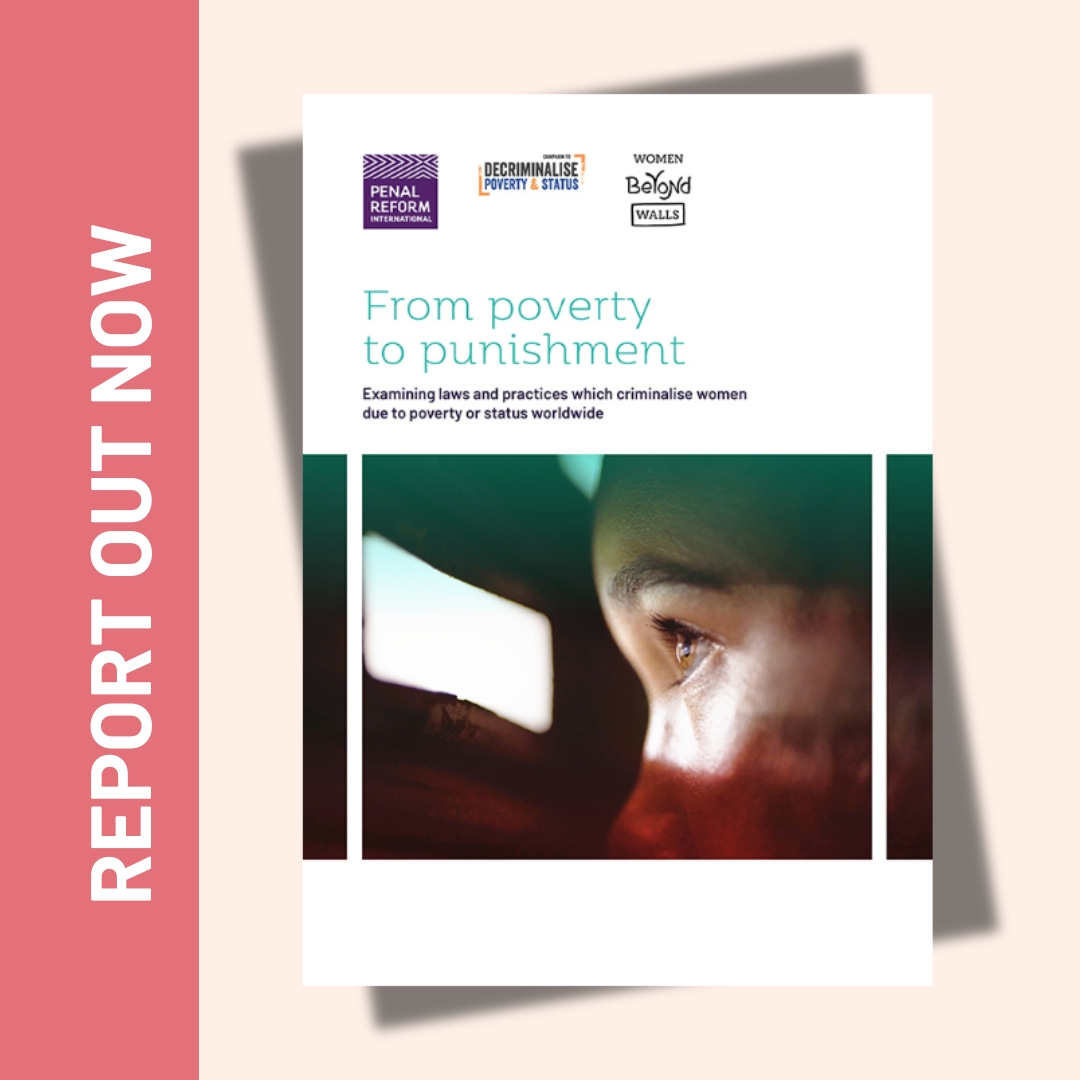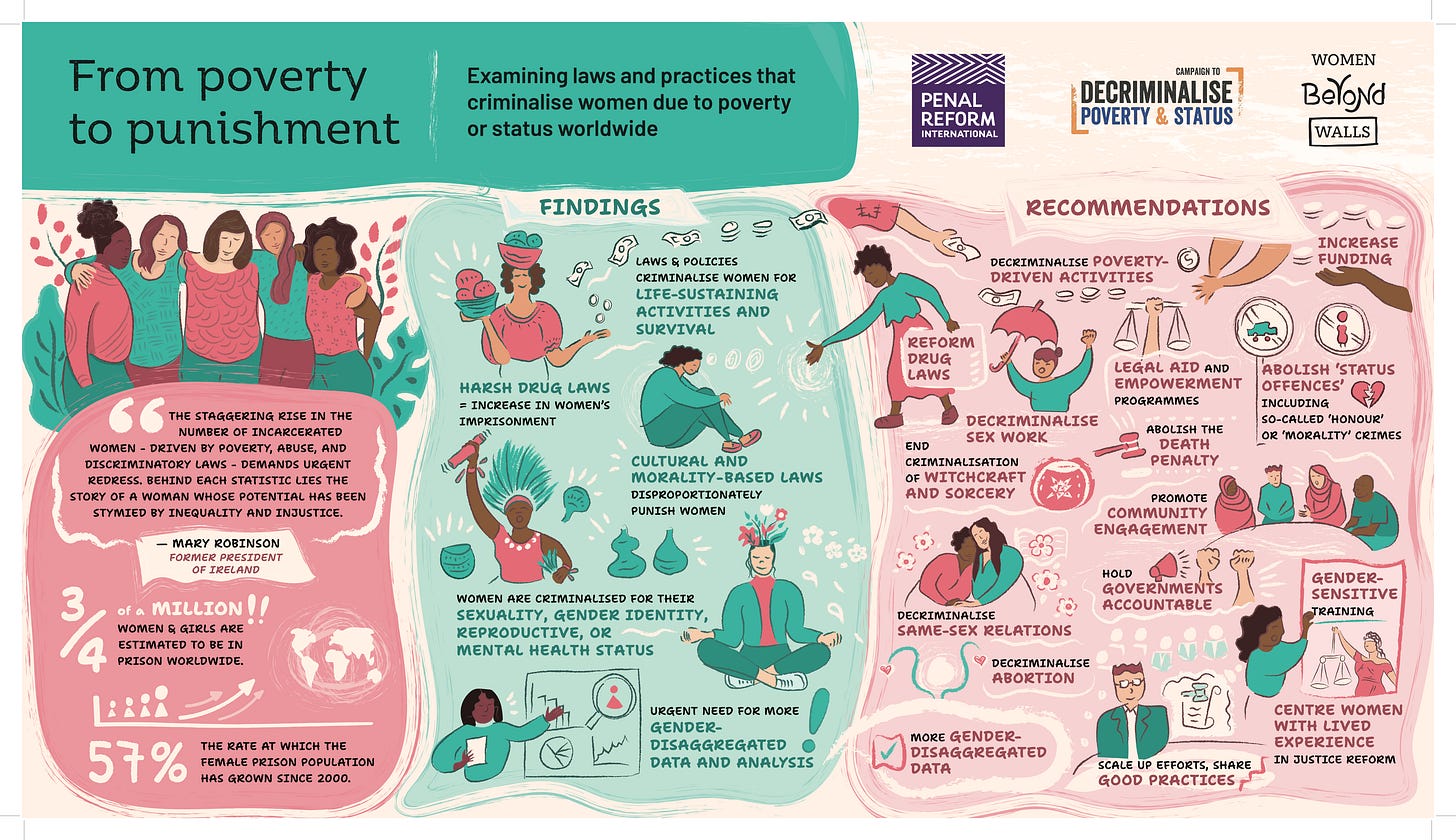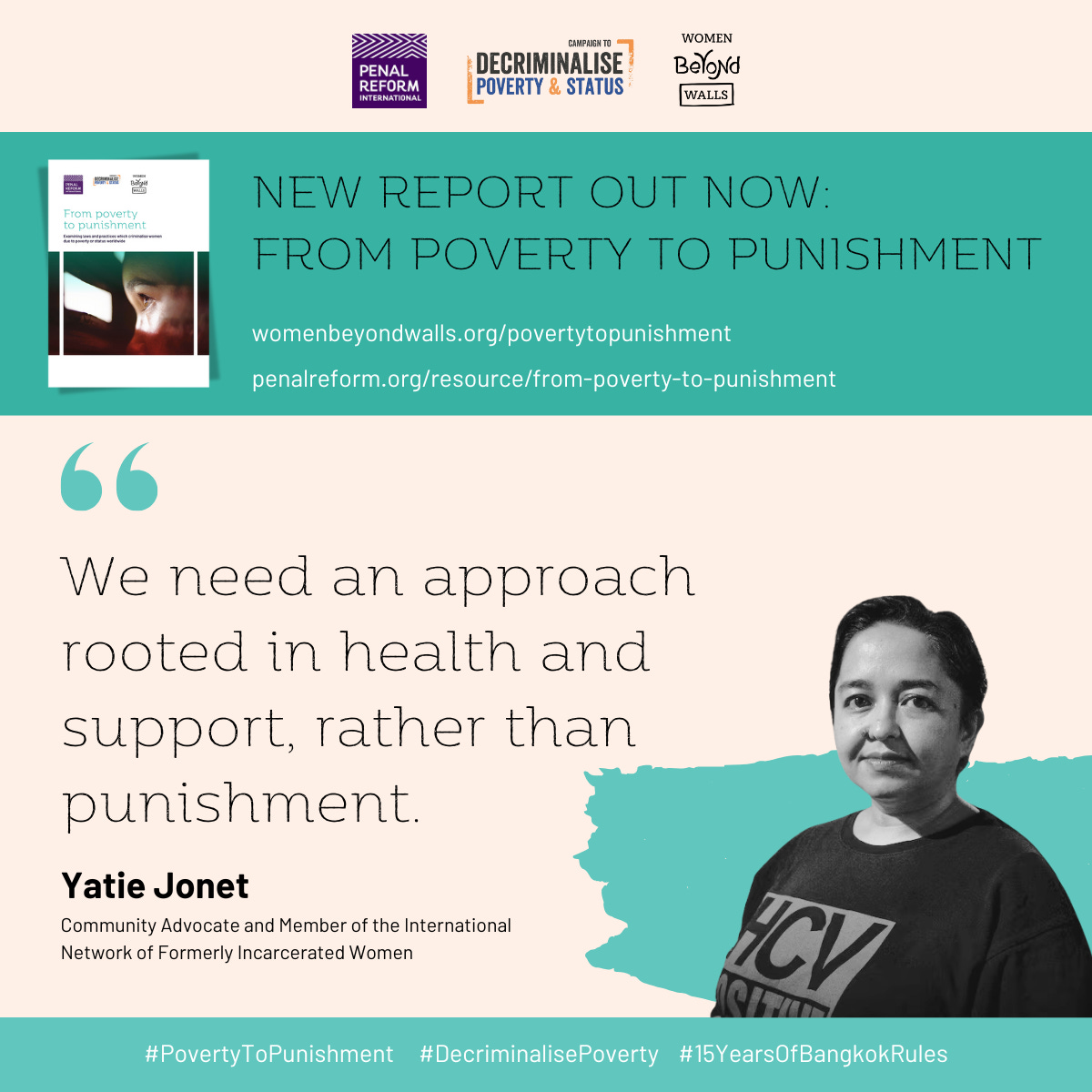New Report Out Now: From Poverty to Punishment
Special edition newsletter – A new report from Women Beyond Walls and Penal Reform International examining laws and practices which criminalise women due to poverty or status worldwide
Unless urgent action is taken, more women will be imprisoned simply for being poor, marginalised, or for exercising their fundamental rights, Penal Reform International and Women Beyond Walls warned at the United Nation’s #CSW69 today.
Today, at the UN Commission on the Status of Women, we launched a groundbreaking report: From Poverty to Punishment. As the first global report of its kind, it exposes the myriad ways laws are weaponised against women who are in situations of vulnerability or because of their ‘status’ as women.
The report examines how laws criminalise women for acts of survival—from petty theft, such as stealing food for their babies, to begging, to working in the informal economy as domestic workers or street vendors, to women detained for debt in violation of international law. Women continue to be arrested under archaic, colonial-era vagrancy laws or simply for being homeless. Although many of these laws appear gender-neutral, they disproportionately impact women due to the feminisation of poverty and systemic gender discrimination.
A Growing Global Crisis: Criminalising Women Instead of Supporting Them
Sabrina Mahtani, of Women Beyond Walls, said:
“Poverty, abuse, and gender discrimination have been driving the alarming rise in women’s imprisonment worldwide. Without action, the number of women behind bars could soon exceed one million. Prison is not a safe space for women or their children. Yet rather than investing in support services and community solutions, countries continue to criminalise those who are marginalised and vulnerable. Addressing the mass incarceration of women must be a priority in global gender equality efforts. For too long, it has been a blind spot in high-level forums on women’s rights and overlooked by policymakers and philanthropists.”
The report also highlights how harsh drug laws are disproportionately driving the increase in women’s imprisonment, particularly in Latin America and Asia.
Yatie Jonet, a Community Advocate from Malaysia and Member of the International Network of Formerly Incarcerated Women, said:
“The ‘war on drugs’ is filling prisons with women who are often in desperate situations. I know from my own experience that prisons, or mandatory drug treatment centres, cause further harm rather than help. We need an approach rooted in health and support, rather than punishment. Governments and international organisations must involve women with lived experience and civil society organisations in shaping solutions that actually meet the needs of women who use drugs.”
Across the world, women continue to be criminalised based on their sexuality, gender identity, reproductive health, and mental health status. Laws that punish aspects of women’s lives in these areas reinforce systemic discrimination, restrict bodily autonomy, and expose women to violence.
In some countries, women are also prosecuted for so-called ‘morality’ or ‘honour’ offences—including adultery, extra-marital sex, what they wear, their behaviour online, or even accusations of witchcraft.
A Call for Global Action
Mary Robinson, Former President of Ireland and former UN High Commissioner for Human Rights, said in her foreword to the report:
“We must collectively resolve to reform practices that criminalise women for their socio-economic status and vulnerabilities. We must also ensure that the voices and experiences of women with lived experience are brought to the forefront of high-level policy discussions, including the upcoming Beijing +30 consultations and other high-level forums on gender equality.”
This year also marks 15 years since the adoption of the UN Bangkok Rules—international standards designed to reduce the number of women in prison and protect their rights in the criminal justice system. However, they are often overlooked, and implementation remains fragmented.
Penal Reform International and Women Beyond Walls are calling on countries and the United Nations to take concrete steps to fully implement the UN Bangkok Rules—so there is a visible reduction in women’s incarceration before the 2030 Sustainable Development Goals deadline. The report documents promising practices and provides actionable recommendations to achieve this goal.
Olivia Rope, Executive Director of Penal Reform International, said:
“The Campaign to Decriminalise Poverty and Status brings together organisations from across the world calling on governments to reform laws, many of which are rooted in colonial-era or patriarchal norms that discriminate against women. We are already seeing countries take bold steps in this direction—decriminalising adultery, begging, street vending, and even suicide. We hope this report spurs further action, and we call on the UN to hold governments accountable for implementing the Bangkok Rules.”
What can you do to help?
📣 Read the report and then share the report! We have social media pack ready for you to use and lots of attached graphics (such as the ones included in this special edition newsletter).
💬❓Got any questions about the report, or any opportunities with media, governments or other institutions you want to share with us? Then contact communications@womenbeyondwalls.org
Thank you in advance for taking the time to read and share this important report.
Yours in gratitude,
Women Beyond Walls team






